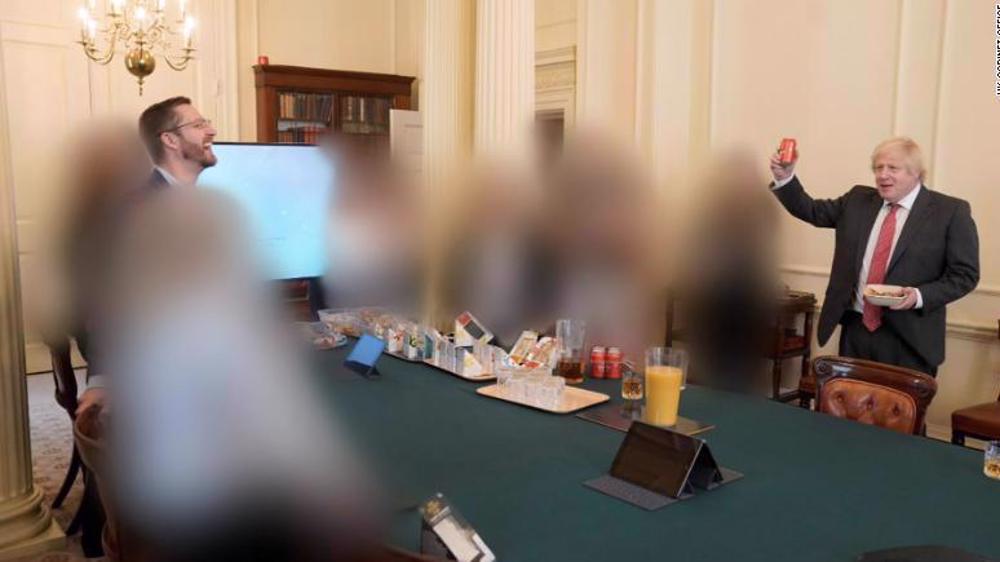UK’s Johnson survives no-confidence vote over 'partygate' scandal
British Prime Minister Boris Johnson has managed to win the ruling Conservative party’s vote of confidence after the "partygate" scandal dealt a heavy blow to the public’s trust in his leadership.
Johnson survived a no-confidence vote on Monday night after winning 59% of the vote, with 211 Tory MPs voting for his premiership while 148 voted against it.
The 57-year-old prime minister needed 180 votes to maintain his leadership among the 359 sitting Conservatives in parliament.
The number of votes cast in support of Johnson was less than the 63-percent won by his predecessor Theresa May in her confidence vote of December 2018.
The current result sees the British premier remain in office, but critics say the scale of the rebellion against Johnson shows his authority has been weakened, with some calling on him to resign for the good of the party and the country due to his lack of repentance over the scandal.
Before the voting took place, more than 15 percent of Tory MPs had withdrawn their support for Johnson over a raft of issues, including controversial lockdown parties in Downing Street.
Roger Gale, one of Johnson’s leading critics, said a “prime minister of honor” should realize he has lost the support of a sizable number of his MPs, suggesting rebels will continue to oppose him remaining as prime minister.
Keir Starmer, the Labour leader, said the Conservative party “believes the British public now has no right to expect honest politicians,” and that the "divided" party is "propping up" Johnson after he survived the confidence vote.
Ed Davey, the Liberal Democrat leader, said Tory MPs have “narrowly voted to keep a lawbreaker and liar in No 10,” adding that Johnson’s “reputation is in tatters and his authority is now totally shot.”
British PM hails 'decisive' win
Speaking after the result, Johnson insisted it was an “extremely good, positive, conclusive, decisive result” that would allow him to “move on to unite and focus on delivery.”
Johnson also claimed he had “won a far greater mandate” from colleagues than he did in his 2019 leadership election, although his detractors cast doubt on that claim.
The premier declined to rule out calling a snap election although he said he was “not interested” in that idea.
The British premier, who scored a sweeping election victory in 2019, has been under increasing pressure after he and staff held alcohol-fueled parties in his Downing Street office and residence when the whole country was under lockdowns to tackle the COVID-19 pandemic.
Johnson, however, claimed that he was absent from most of the events and denied ever lying to parliament.
D-8’s role in Iran’s economy after Cairo summit
China slams US as ‘war-addicted’ threat to global security
China ‘firmly opposes’ US military aid to Taiwan
VIDEO | Press TV's News Headlines
President Yoon Suk Yeol to be removed from office
At least 19 Gazans killed by Israeli airstrikes since dawn: Medics
Leader: Iran neither has nor needs proxy forces
US fighter aircraft shot down ‘in friendly fire’ amid aggression on Yemen










 This makes it easy to access the Press TV website
This makes it easy to access the Press TV website